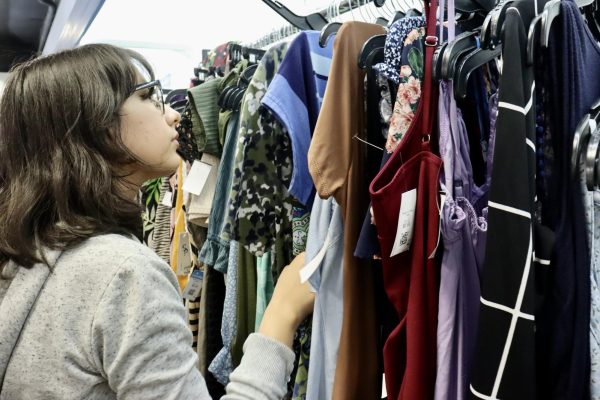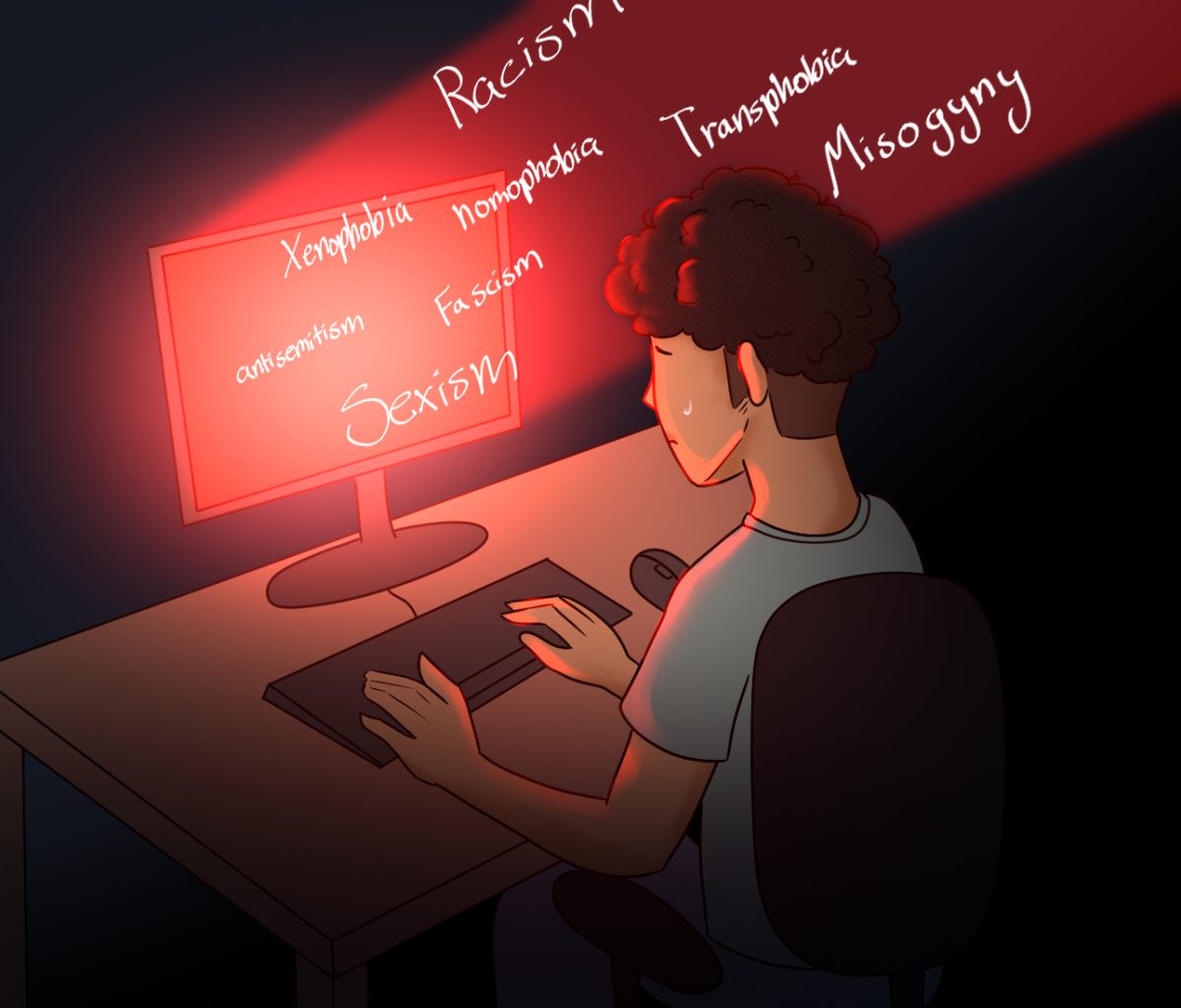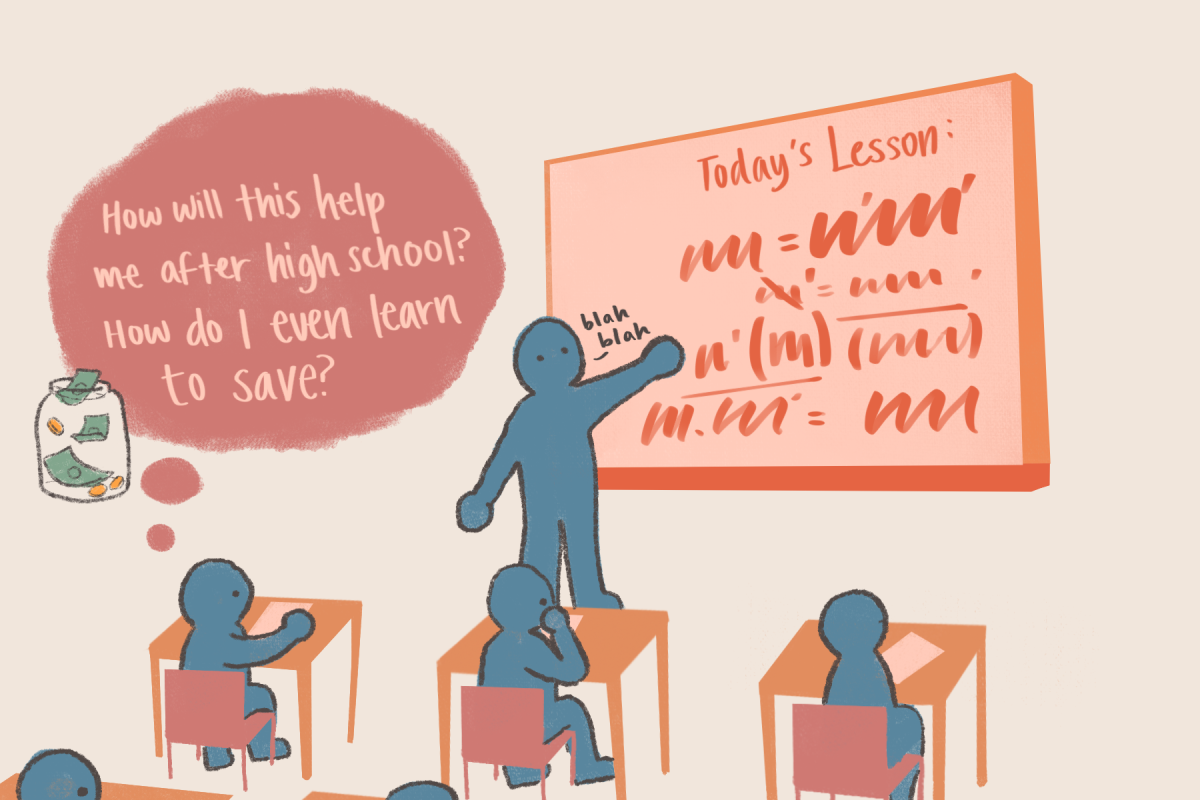Like many teens, I have found myself scrolling through TikTok, seeing other creators’ Amazon Storefront pages and looking at my friends’ purchases to see what latest trendy product I should buy. These trendy items have almost swayed me but I ask myself if I truly need to spend this money.
As trends come and go, social media makes shopping more accessible and the environment more forgotten. We must try to find eco-friendly ways to shop for brands and be more aware of online trends to combat the urge to splurge and buy unnecessary things.
Despite the environmental damages of overconsumption, FOMO (fear of missing out) makes people feel the need to keep up with the latest fad so they buy more products they don’t necessarily need without regard to the environmental consequences. TikTok has facilitated online shopping with videos of hauls on makeup, clothes, skincare and other items, making unnecessary shopping more popular and creating more products to damage the planet.
One of the most recent social media purchases is the Stanley Cup with reviews, hauls and videos flooding social media. These cups sell out within minutes not because of their remarkability but because consumers don’t want to miss out on trying the latest fad. Like with any other product, people simply buy what others on the internet are showing off. Mania over the $45 water bottle resulted in overnight waits for the Valentine’s Day Target collaboration with resells of up to $500.
These influences to over-consume have swayed younger audiences, often children younger than TikTok’s minimum age requirement of 13 years, to splurge on unnecessary items. USA Today has written that stores like Sephora have reported an influx of elementary school-age girls buying expensive skincare and makeup products. These young girls have reportedly forced Sephora stores to remove their testers (samples of products) because of large messes. This leaves no regard for any other shopper who might actually want to try a product who actually needs it.
This disruption generates a cycle for these girls to promote their newly bought products back to TikTok, where they first saw it advertised. These 10-year-olds are using $500 products that contain retinol and anti-aging ingredients meant to be used later in life, instead this makes their skin look and feel worse. Overusing a product makes it less useful since anti-aging products should be used as early as your 20s but are more recommended in your 40s and 50s.
The consequences of this excessive shopping not only influence younger demographics’ shopping or run one’s wallet dry, but damage our physical environment. The planet only weakens with our rampant consumption of products, which affects us all in the long run.
To keep up with the overconsumption all over social media, corporations increase production, generating more pollution. SHEIN is best known for its mass production so it can catch up to trends, causing serious harm to the planet, consumers and workers. The Pearl Post has previously gone into depth on the impact fast fashion brands like SHEIN have on the world. Overconsumption has highly contributed to our environmental issues with companies like SHEIN, wasting more energy and water with each order we place.
While splurging on yourself from time to time is not necessarily frowned upon, we must keep in mind that we affect the environment, society and ourselves with each purchase we make. Shopping at thrift stores is an environmentally friendly and economical way to buy items like clothing. Second-hand stores provide items that people can repurpose and reuse, which helps reduce clothing waste. Children must also learn which products are meant for them and understand how misusing them impacts them.
Trends will always change, but we must always be consistent in our lives and monitor our purchasing habits to help the planet and prevent those who are too young from falling victim to them.











